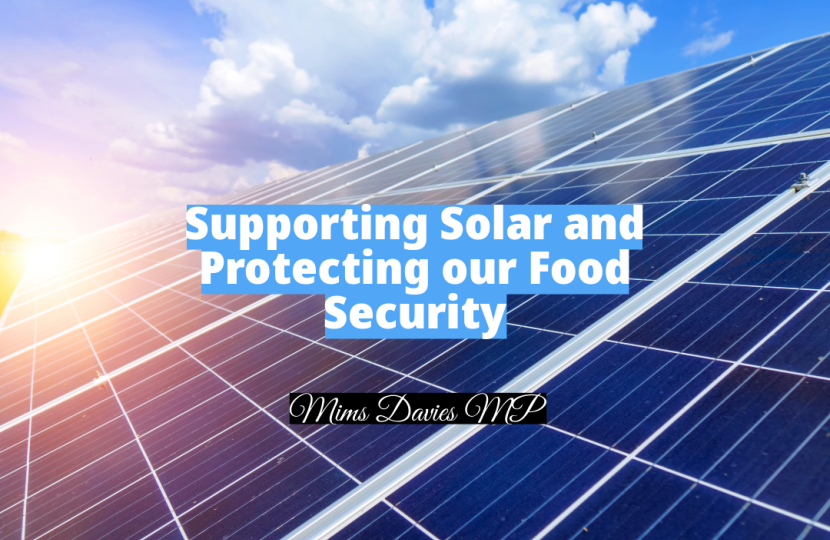
As the Prime Minister set out earlier last week, in the face of heightened global instability, the government is taking steps to strengthen food security as part of the UK’s national resilience.
This includes protecting ‘Best and Most Versatile’ (BMV) land, ensuring large solar projects avoid this higher quality land where possible. Instead, they should be developed on brownfield land, contaminated land, industrial land, and lower quality agricultural land so as not to compromise the UK’s food security.
Food security is an essential part of national security. Heightened geopolitical risk has brought this into sharper focus and DESNZ think it is more important than ever that our best agricultural land is protected and our food production prioritised. At the same time, we have seen our energy security threatened following Putin’s illegal invasion of Ukraine with the Government spending up to £40bn to pay up to a half of people's energy bills.
We are combatting this by racing ahead with the deployment of renewable energy; nearly half of our electricity today is produced from renewables which is up from only 7% in 2010. Solar power is a cheap, versatile technology and is a key part of the Government’s strategy for energy security, net zero and clean growth.
The Government recognises that, in some instances, solar projects can affect local environments which may lead to unacceptable impacts for some local communities. The planning system is designed to balance these considerations against the need to deliver a secure, clean, green energy system for the future.
Mims Davies MP said:
"As a Government, we are absolutely committed to protecting and improving the nation’s food security, alongside action that safeguards our energy security.
The government is taking pressure off the countryside and away from the country’s best agricultural land by making it easier to deploy rooftop solar. Recent changes to permitted development rights will cut red tape and make it easier and cheaper to put solar panels on the rooftops of commercial buildings - including on farm buildings, warehouses, factories and carparks.
Further plans to roll out more solar across social housing and the public sector will be set out in the upcoming Solar Roadmap – helping more schools, colleges, hospitals, and other buildings supply themselves with clean and cheap solar power."
Energy Security Secretary, Claire Coutinho MP said:
"As the Prime Minister set out this week, rising threats around the world mean we must have a renewed emphasis on our security. That means protecting our food security whilst also delivering the cheap energy we need.
We are taking further steps today to make sure we can get that balance right. I want to see more solar on rooftops and where that’s not possible, for agricultural land to be protected; and for the cumulative impact on local villages to be considered where they are facing a high number of solar farm applications.
We will make sure we reach our solar targets in a sensible way that delivers clean, cheaper energy but does not compromise our food security."




